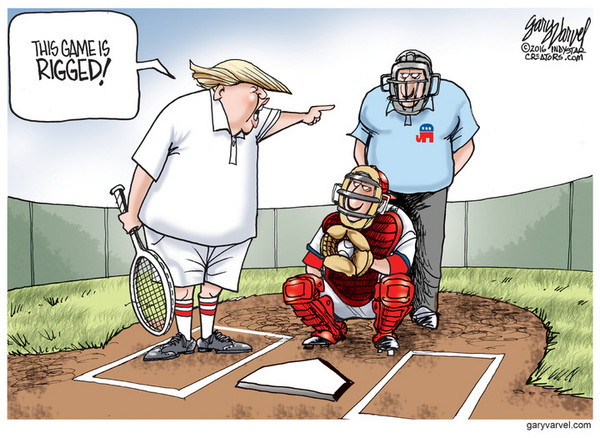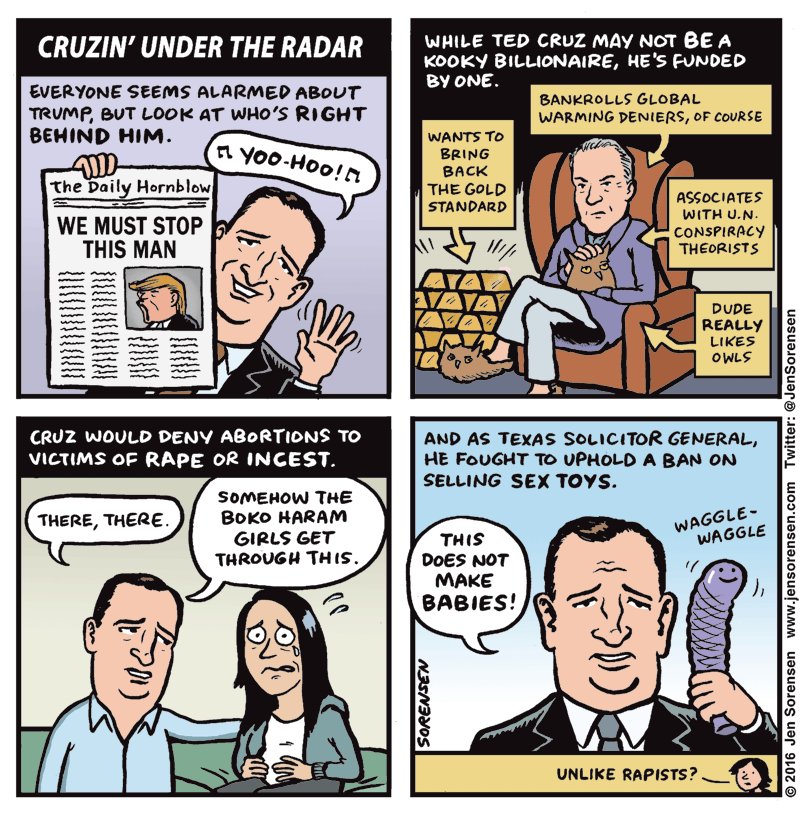There was an article in Politico last week titled “Bankers for Bernie“, about bankers and financiers who support Bernie Sanders. Frankly, there should be many more of them.
After all, if you know anything at all about finance and economics, you should know that they are not a zero-sum game. As they say, a rising tide raises all boats. It was the rising middle class in America that led to our most prosperous times and economic prosperity. And numerous studies have proven that in places where there is too large a gap between the rich and the poor, everyone – including the rich – suffers. Not just financially, but also their life expectancy goes down, as well as the quality of their life. These are facts.
But even if they weren’t true, even if you are competing for a prize of fixed size, how can you feel good about yourself if you have to tilt the playing field in your favor? Is it worth winning if you have to knee-cap your competition? Do you really want to live in a world where the only way to get ahead is corruption and cheating? What kind of world is that? You don’t have to speculate, because there are plenty of places in the world where corruption and graft is the norm, and they are not pretty places. What’s the point of being rich if you can’t even walk down the street without surrounding yourself with bodyguards? Or where your children suffer because of pollution and crime?
And we’ve seen what happens when Wall Street gets free reign to do whatever they want. Bubbles, more bubbles, recession, or worse. Followed by a complete vilification of bankers and investors (which they mostly deserve, although to me it doesn’t help to blame the bankers when the system is really to blame), and then by the pendulum swinging toward socialism. Are the bankers so stupid that they can’t see this coming? Can they see no further than this quarter’s profits?
To me, the solution is not unbridled capitalism, which in its purest form is no better than robber barons and warlords. I do believe in free markets, although that term means something slightly different than what many corporate CEOs think it means. But neither is it unbridled socialism, which has produced problems just as bad.
It means equal opportunity. Everyone should have an equal chance to succeed, which means that everyone will also have an equal chance to fail. But failure should not be terminal. There needs to be a comprehensive social safety net. I’m not asking for much, just the same degree of safety net that we always seem to be able to afford to bail out the too-big-to-fail banks and other industries.
Equal opportunity means that everyone has equal access to health care, and an equal chance to get a good education. It means that we need to expand the meaning of capital to include not just money, but also “social capital“.
It means that we have to eliminate, as much as possible “externalities” by taxing them at their full cost. Business that pollute should pay for mitigating that pollution completely. Businesses that use up finite resources (rare materials, clean water, and even biodiversity) should be taxed to completely cover those costs. Sustainability should be encouraged by taxing businesses that are not sustainable (like fossil fuels, overfishing, etc.). Corporate law should be changed to reduce the fixation on short-term profits at the expense of, well, everything else.
And finally, the playing field must be as level as possible. Monopolies should (once again) be prohibited by law, and even inheritance should be heavily taxed. If you have done your job as a parent, there is no need to give your children an overly unfair monetary advantage. They have the opportunity to succeed on their own. Don’t give them the fish, teach them how to fish.
On the other hand, with all these new taxes on pollution and destruction of resources or species, we should be able to greatly reduce many conventional taxes. We should mainly tax things we want to reduce. Currently, we stupidly tax things that we should be encouraging. We have sales taxes, when we depend on consumers to buy things to keep the economy going. We tax income, when we need people to earn money. Let them keep more of the money they earn. But if they can’t take it with them when they die, and can’t just pass it down completely to their children, there will be less incentive for people to be overly greedy. That, in turn, will reduce economic bubbles, because the rich will spend less time searching for safe places to invest their money.
Property should still be taxed, because it is a finite resource. I’m fine with taxing things like drugs, but we should make drug use legal, and then use the taxes we raise on them to pay for any health or other problems that arise from excessive drug use, instead of paying to throw drug users in jail, which does nobody any good.
That’s my solution. It isn’t socialism (not even “democratic socialism”, which does share some of the same goals), and it isn’t what we currently think of as business-friendly capitalism (although I’m sure we will find that it is actually far more friendly to business). I’m not sure what to call it, although one could invent terms like “social capitalism”.





